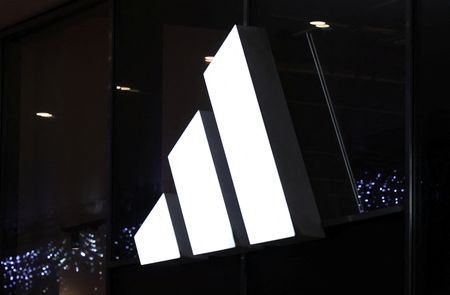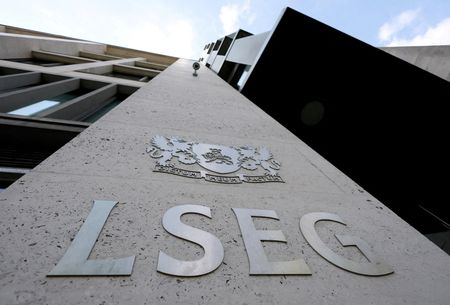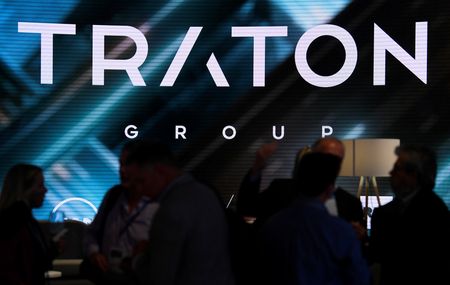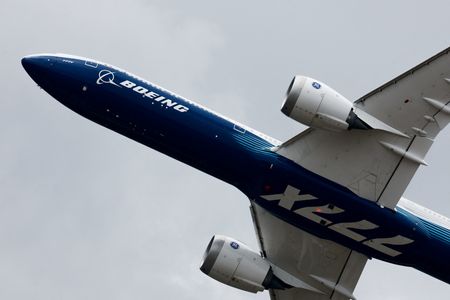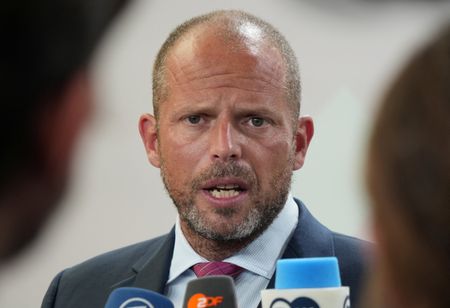By Linda Pasquini and Helen Reid
(Reuters) -Adidas’ third-quarter sales dipped 5% in North America, hit by a weak dollar, while its CEO said on Wednesday that U.S. retailers remained cautious over the unclear impact of President Donald Trump’s tariffs on American consumers.
Adidas’ shares were down 5% by 1215 GMT, despite its global revenues growing 3% to a quarterly record of 6.63 billion euros ($7.73 billion).
The company said a strong euro dealt a 300 million euro hit to its sales. Adjusting for the currency impact, sales in North America – its second-biggest market – were up 1%, still significantly slower than Adidas’ overall currency-adjusted figure of 8%.
The full impact of tariffs on American consumers was not yet clear, but U.S. retailers remained “very careful” and are ordering less product upfront, CEO Bjorn Gulden said on a call with journalists.
“Everybody who’s importing products from now (high) tariff countries is of course nervous what will happen when the new prices are then going through,” he said. “I don’t think the price increases are really visible for many consumers yet.”
MITIGATING TARIFF HIT WITH PRICE HIKES, SUPPLY CHAIN CHANGES
Adidas expects Trump’s tariffs to shave 120 million euros off its operating profit this year, with the biggest hit coming in the fourth quarter, Gulden said. That is down from an earlier estimate of 200 million euros, after it offset a portion of the tariff hit with price hikes and supply chain changes.
Adidas has tried not to hike prices on its cheaper shoes and clothes as those customers are more sensitive to increases, Gulden said.
Instead, the company has raised prices on more expensive items. Adidas’s popular Samba sneaker, for example, is now priced at $100, up from $90 previously.
“The consumer reaction to our product and our price points was okay … but I think it’s too early to say,” Gulden said.
Like other sportswear brands, which source everything from tracksuits to sneakers from factories in Asia, Adidas has cut its sourcing from China to the U.S. to manage the impact of higher U.S. tariffs.
RECOVERING FROM YEEZY, SAMBA STILL GROWING
“Even though the general consumer is not strong and there was lots of inventory in the market, still Adidas manages to grow well,” said Simon Jaeger, portfolio manager at Flossbach von Storch in Cologne.
Adidas is still recovering from the Yeezy affair after ending its highly profitable partnership with the brand’s designer – the rapper Ye, formerly known as Kanye West – over his antisemitic rants.
The loss of the line dented revenues, driving the company to an annual loss in 2023. It sold its last pair of Yeezy shoes at the end of 2024.
Under Gulden, the recovery has been fuelled by multicoloured retro “terrace” sneakers like the Samba and Gazelle, but the brand has been looking for new sources of growth as that trend turns.
“The Samba is still growing. I know people say it’s over, but it isn’t,” Gulden said.
He also, however, pointed to Adidas’s running segment – where it has invested in new high-tech shoes and marathon-winning athletes – which grew 30% in the quarter, improving on 25% second-quarter growth.
($1 = 0.8575 euros)
(Reporting by Linda Pasquini in Gdansk and by Helen Reid in London; Editing by Matt Scuffham and Joe Bavier)



